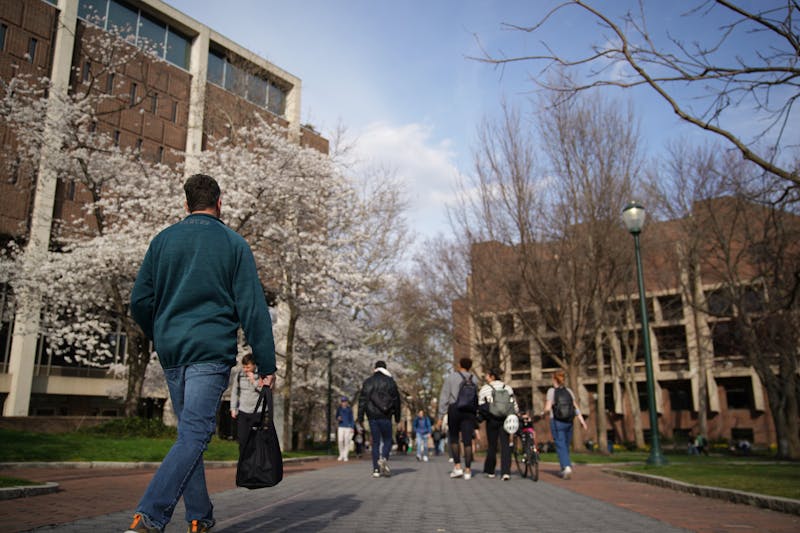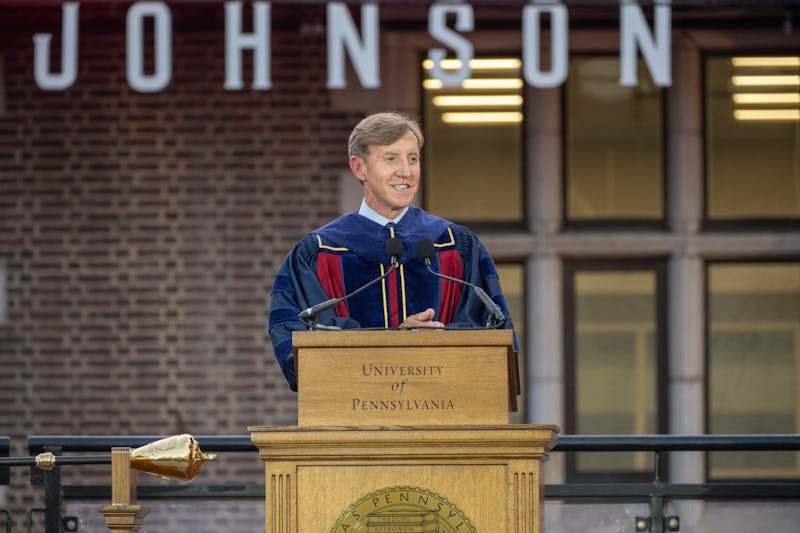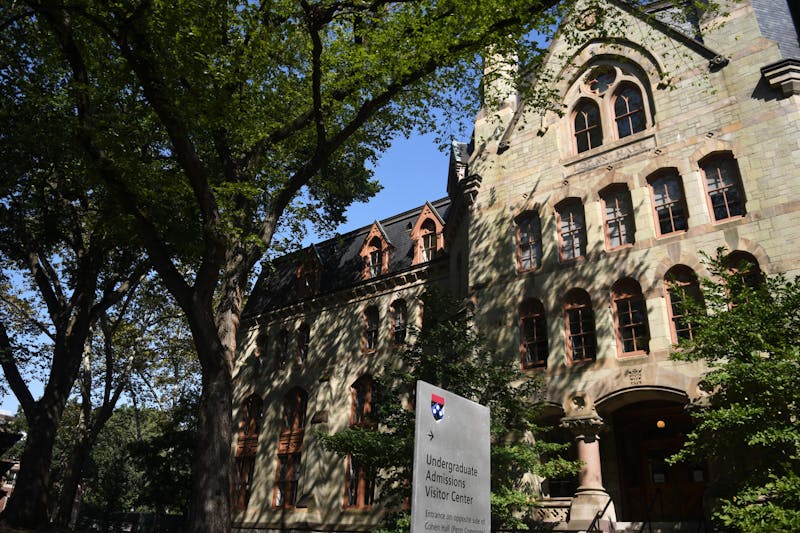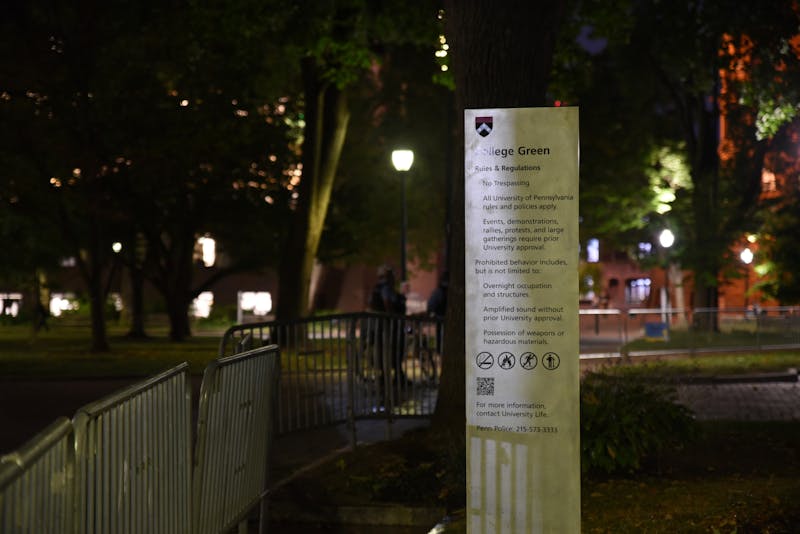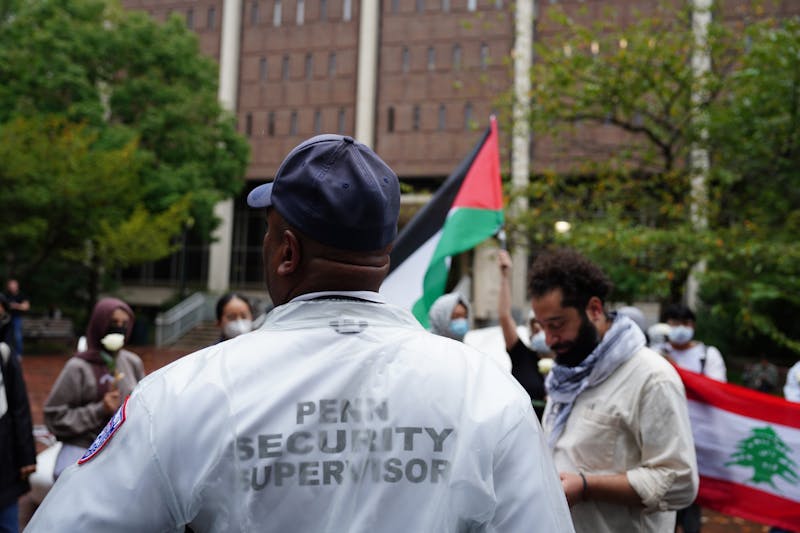
On Sept. 10, in an email message to the Penn community, Interim Penn President Larry Jameson announced that University leaders would no longer comment on global or political matters not central to the University’s mission. The message formally announced Penn’s move towards institutional neutrality — a practice long adopted by universities such as the University of Chicago, and more recently instituted at Harvard University, Stanford University, and Vanderbilt University. The general consensus among the universities is this: When academic institutions announce formal political positions, they generate campus orthodoxies that diminish the freedom of speech and academic discourse central to the purpose of a university.
I’ve grappled with this interpretation of neutrality for a long time. What does it mean for universities — producers of knowledge — to remain silent in the face of global crises? Alternatively, what does it mean when powerful institutions announce positions that isolate and marginalize entire populations on campus — those who have value sets founded on their own unique and valid experiences?
Questions like these are difficult to answer because their solutions are multifaceted. But I would be remiss if I didn’t acknowledge the very real consequences of universities taking official political positions — consequences that became evident following the backlash against former Penn President Liz Magill’s response to the Israel-Hamas war. When universities announce official opinions on contentious political issues, they inadvertently alienate members of the community with opposing views. Faculty and students of differing beliefs become both invisible and hypervisible, their voices repressed but with extra attention allotted to their positions.
Thus, I contend that the University is correct and justified in its pursuit of neutrality. But I would like to adapt Penn’s statement on neutrality, in favor of a more complicated neutrality: principled neutrality.
Principled neutrality is not a new term. In fact, Vanderbilt Chancellor Daniel Diermeier prefers its use to describe the mission of a university facing matters of civil discourse. In an interview with the Jewish Federation of Greater Nashville, Diermeier explained that “principled neutrality is about what the university’s position should be. And the core belief is that if the university doesn’t have a duty to speak on something, it should remain silent.”
I envision a similar adoption of principled neutrality here at Penn, albeit more transparent in its goals. Penn must clearly outline moral "no-goes" — values and beliefs the University does not stand for — if it hopes to maintain political neutrality and still thrive as an environment for diversity and free speech.
This means clarifying to the Penn community that discrimination on the virtue of race, color, gender, sexuality, or religion may not proceed on campus.
History has shown that complete neutrality only further oppresses those who already exist within the margins of society. Without guardrails, such as the 14th Amendment and the Civil Rights Act of 1964, society finds comfort in the complacency of oppression. Individuals who were victims of a government-fueled effort sanctioning their mistreatment will see much of the same mistreatment.
Some scholars argue that universities, as paragons of academic discourse, have a responsibility to shape political discussion. In an op-ed for Inside Higher Ed, Vanderbilt professor Brian Heuser writes, “Due in large part to our exceptional stock of human capital and economic impact, universities can be powerful — even profound — actors in the public discourse. But adeptly leveraging this potential requires transformational leadership, political acumen, and a steadfast commitment to prioritizing the common good.”
Heuser has a valid point here. Penn is predisposed to a plethora of intellectual talent. When we weigh in on social issues, people tend to listen. However, it is important to clarify which members of a university are largely responsible for political conversation.
Professors, researchers, and students — individuals engaged in the everyday critical thinking demands of an academic institution — steer the beliefs associated with their universities, a role not to be conflated with that of university administration. In fact, the 1968 anti-Vietnam War demonstrations at Columbia University helped to establish the reputation of universities as incubators of dissent. Such protests sparked further demonstrations across the country and provided the groundwork for future uprisings, including students’ successful movement against Columbia’s investment in South African apartheid.
In this sense, students are primary authors of historical narratives. Universities serve as the first front of any nationwide political transformation. Organized demands begin on campus and spiral into the national consciousness, where they become subject to the oversight of policymakers.
If Penn seeks to allow students to further express their beliefs without repression from administration, then we should support that decision fully. The University has a duty to protect the internal freedom central to its mission. We as students deserve to engage in dialogue without fear of contradicting a dogma outlined by our institutions.
That said, I cannot state in enough clarity that the University must guarantee the protections and basic rights of its marginalized students. Institutional neutrality is not enough — Penn must adopt a principled neutrality. It must acknowledge the identity-based discrepancies that exist on campus as a result of a hegemonic greater society. It must ensure safe spaces will be made available for students when discrimination — both external and internal to the institution — strikes their communities. Without securing the wellbeing of marginalized students, we cannot hope to attract the diverse academic community so necessary to the success of a university.
JULU NWAEZEAPU is a College senior studying behavioral and computational neuroscience from Chicago. Her email is julunwae@sas.upenn.edu.
The Daily Pennsylvanian is an independent, student-run newspaper. Please consider making a donation to support the coverage that shapes the University. Your generosity ensures a future of strong journalism at Penn.
Donate







